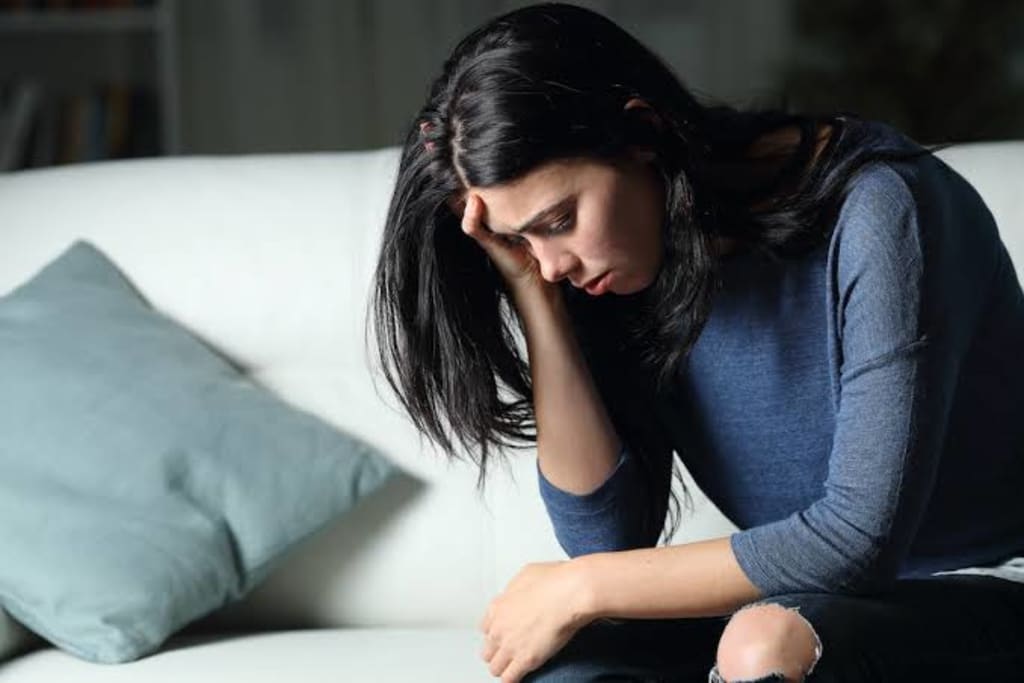Understanding Anxiety: Causes, Prevention, and Treatment
Navigating Anxiety: Understanding its Roots, Building Resilience, and Finding Relief

Introduction
Anxiety is a prevalent mental health concern affecting millions of individuals worldwide. It manifests as excessive worry, fear, and unease, often accompanied by physical symptoms such as increased heart rate, sweating, and restlessness. This article explores the various causes of anxiety, effective prevention strategies, and the available treatments to help individuals manage and overcome this condition.
Causes of Anxiety
* Genetics: Family history of anxiety disorders can increase the likelihood of experiencing anxiety. Genetic factors play a role in determining an individual's susceptibility to anxiety.
* Brain Chemistry: Imbalances in neurotransmitters, such as serotonin and dopamine, can contribute to the development of anxiety. These chemicals regulate mood and emotions, and disruptions can lead to anxiety symptoms.
* Environmental Factors: Traumatic events, childhood experiences, or ongoing stressors can trigger anxiety. High levels of stress, especially during critical developmental stages, may influence the brain's response to future stressors.
* Personality Traits: Certain personality traits, such as perfectionism, low self-esteem, and a tendency to overthink, are linked to a higher risk of anxiety disorders.
Symptoms
* Excessive Worry: Persistent and uncontrollable worry about various aspects of life, even if there's no real threat.
* Restlessness: Feeling on edge, being easily agitated, or finding it difficult to relax.
* Difficulty Concentrating: Trouble focusing or feeling easily distracted.
* Muscle Tension: Physical symptoms like muscle aches, tension headaches, or tightness in the body.
* Fatigue: Feeling tired or having a general sense of exhaustion, often due to the constant state of heightened alertness.
* Irritability: Easily becoming annoyed or irritable, often without a specific reason.
* Sleep Disturbances: Difficulty falling asleep, staying asleep, or experiencing restless sleep.
* Racing Heartbeat: Feeling palpitations or an increased heart rate, especially during anxious situations.
* Shortness of Breath: Feeling breathless or having difficulty breathing during anxiety episodes.
* Gastrointestinal Issues: Nausea, stomach pain, or digestive disturbances can be associated with anxiety.
* It's important to note that everyone experiences anxiety differently, and not all symptoms may be present in every case. Additionally, these symptoms should not be self-diagnosed, as they can also be indicative of other medical or psychological conditions. If you or someone you know is experiencing these symptoms and they are causing distress or interfering with daily life, seeking professional help from a mental health provider is crucial for proper evaluation and support.
*
Prevention Strategies
* Mindfulness and Relaxation Techniques: Practices like mindfulness meditation, deep breathing exercises, and progressive muscle relaxation can help manage stress and promote emotional well-being.
* Healthy Lifestyle: Regular exercise, a balanced diet, and sufficient sleep are vital in maintaining overall mental health. Engaging in physical activity releases endorphins, which can alleviate anxiety symptoms.
* Limiting Caffeine and Alcohol: High consumption of caffeine and alcohol can exacerbate anxiety. Moderation or avoidance of these substances can help reduce the risk of developing or worsening anxiety.
* Social Support: Building a strong social network and maintaining meaningful connections with friends and family can provide emotional support during challenging times.
* Stress Management: Learning effective stress management techniques, such as time management, setting realistic goals, and prioritizing tasks, can help prevent the accumulation of stress that may lead to anxiety.
Treatment Options
* Therapy: Psychotherapy, such as Cognitive Behavioral Therapy (CBT) and Exposure Therapy, is widely used to treat anxiety. CBT helps individuals identify and change negative thought patterns, while Exposure Therapy gradually exposes individuals to anxiety-inducing situations, helping them build resilience.
* Medication: Antidepressants and anti-anxiety medications, such as selective serotonin reuptake inhibitors (SSRIs) and benzodiazepines, can be prescribed to manage anxiety symptoms. These medications work by regulating neurotransmitter levels in the brain.
* Lifestyle Changes: Implementing healthy lifestyle changes, including regular exercise, a balanced diet, and quality sleep, can significantly reduce anxiety symptoms.
* Support Groups: Joining support groups or seeking peer support can provide individuals with a safe space to share their experiences and coping strategies.
* Complementary Therapies: Techniques like yoga, acupuncture, and aromatherapy may help alleviate anxiety symptoms in conjunction with traditional treatments.
Conclusion
Anxiety is a complex mental health condition with various contributing factors. While genetics and brain chemistry play a role, environmental influences, personality traits, and lifestyle choices also impact an individual's susceptibility to anxiety. Preventive measures such as mindfulness, healthy living, and stress management can reduce the risk of developing anxiety. For those already struggling with anxiety, a combination of therapy, medication, and lifestyle changes can significantly improve their well-being. Seeking professional help and implementing these strategies can empower individuals to manage anxiety effectively and lead fulfilling lives.
About the Creator
Enjoyed the story? Support the Creator.
Subscribe for free to receive all their stories in your feed. You could also pledge your support or give them a one-off tip, letting them know you appreciate their work.





Comments
There are no comments for this story
Be the first to respond and start the conversation.